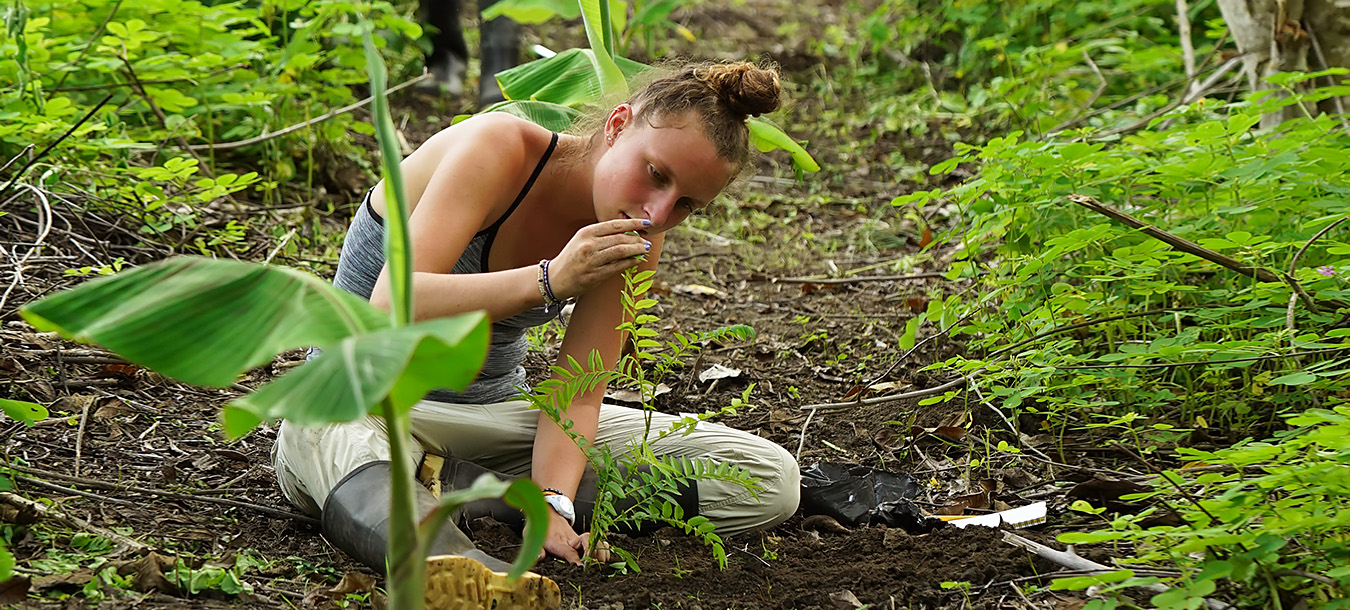
The Ceiba Foundation offers a variety of programs that allow students and professionals to contribute their energy and expertise to our programs. Whether you are a student looking for unique, hands-on study abroad opportunities, a scientist seeking research sites, or an undergraduate or graduate who wishes to gain practical experience, we have opportunities for you!
Ceiba offers both semester-length and summer programs, focusing on tropical ecology, marine biology, community health, and habitat conservation
Ceiba’s flagship study abroad program, the Tropical Conservation Semester, leads students on an educational adventure amidst the dramatic beauty of Ecuador. Intensive explorations of the Amazon rainforest and the Galapagos Islands, immersion in Latin American culture, and a month-long internship with a local community or conservation organization make this program unique! Come gain hands-on experience in Ceiba’s active conservation and research projects, while learning marine biology and terrestrial ecology, studying Spanish, and living with host families in Quito and in the Galapagos. The program is fully accredited (16 honors credits) by the University of Wisconsin for students from any US or Canadian institution.
During this new Marine Biology program you will spend two weeks snorkeling the second largest barrier reef in the world, off the coast of Belize. Crystal clear water, a classroom by the ocean, and incredible underwater diversity make this location ideal for learning about the marine environment. Study the ecology and conservation of fish, corals, sponges, and reef ecosystems during a pre-departure online course, then put your knowledge into practice on a remote Caribbean island in the middle of a marine reserve!
The Water For Life course on the coast of Ecuador highlights the interconnections between human use of water resources and health. You will examine the sustainability of land and water management practices in a rural area of coastal Ecuador where people rely on rivers for their water needs. Students sample local rivers, participate in assessments of the water-related health risks in local water supplies, and conduct participatory planning of strategies that will increase sustainability and reduce the risk of water-borne diseases. Please note, this program is only available to University of Wisconsin students.
Interns and volunteers can participate in many of our ongoing research and conservation projects, contributing to real-world data collection and gaining hands-on experience
The Ceiba Foundation offers a variety of internships in conservation, research, education, and community development. Our interns engage in detailed pre-arrival planning, and enjoy greater supervision and involvement during extended stays in Ecuador. These internships are a great way to combine your academic background with hands-on field experience. Broaden your horizons and gain valuable experience as you lend a hand, and put your knowledge and skills to work for habitat conservation, reforestation, environmental education, community development, and scientific research.
Ceiba is dedicated to conservation of tropical ecosystems, and works with local people to protect natural resources and develop sustainable ways of living. Volunteers make tangible and lasting contributions to our projects, and are long remembered by the communities where they work. Volunteering is a great way to get hands-on experience: whether it’s building trails, working with local communities, planting native trees, or surveying bird diversity!
Ceiba oversees reserves in highly endemic cloud forest and coastal dry forest, where researchers can work productively and live comfortably
Studying the habitats we are protecting, and evaluating the effectiveness of reserves at safeguarding rare species, is a key component of Ceiba’s conservation work. It is our goal to promote the study of tropical ecosystems, their flora and fauna, and how they are viewed and utilized by local people. We encourage researchers interested in the study of tropical ecosystems to consider conducting studies at one of Ceiba’s project sites: the El Pahuma Orchid Reserve, in the cloud forests of the Andes, and the Lalo Loor Dry Forest Reserve, near the equator on the dry forest coast.